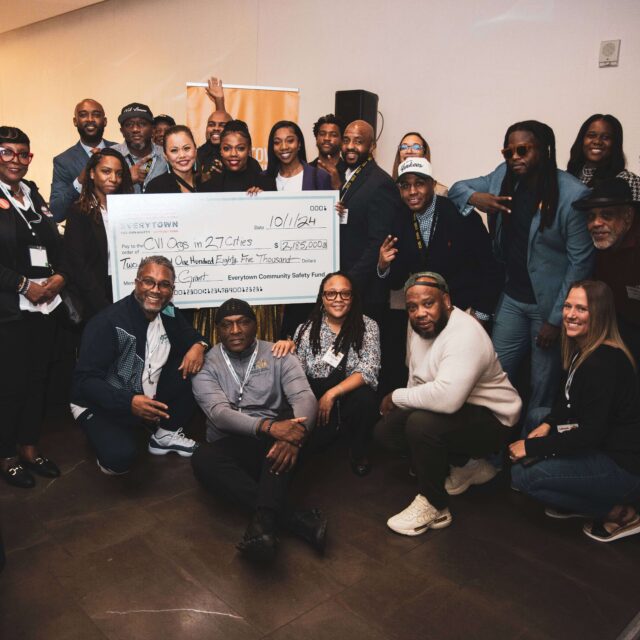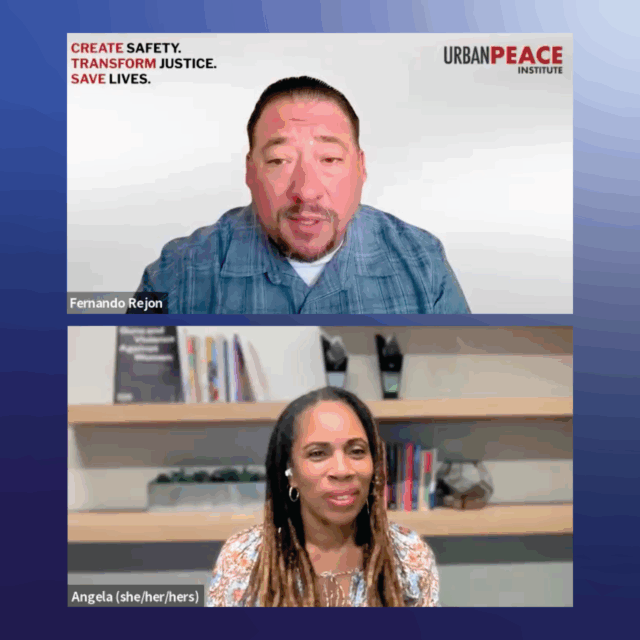Beyond the First 100 Days: CVI Investment Is Needed More Than Ever

6.2.2025
In just 100 days, the new administration has upended century-old legal precedent, strained key national relationships, and undermined critical infrastructure—all with outsized consequences for our Community Violence Intervention (CVI) network. To the unfamiliar, CVI refers to evidence-informed, community-led strategies seeking to end cycles of violence. As this work has expanded in recent years, so too have historic reductions in crime rates. This progress, coupled with wide bipartisan support, led to unprecedented federal support that galvanized billions of dollars to flow to community-based organizations nationwide.
Unfortunately, in just a few short months, much of this federal progress has been halted or outright cut. The first-ever White House Office of Gun Violence Prevention which coordinated local efforts to curb violence was dismantled, key CDC departments focused on gun violence research have been gutted, and vital grant programs dedicated to making the public safer have been frozen or rescinded. Several of these critical funding streams include Byrne JAG, the Victims of Crime Act (VOCA), the Community-Based Violence Intervention and Prevention Initiative (CVIPI), and key Violence Against Women Act (VAWA) programs. Removing CVIPI grants alone has placed 65 community-based organizations across 25 states at risk. Among them, 25 are Everytown Community Safety Fund (CSF) grantees or alumni, who collectively lost access to $22.9 million in grant funding.
This is not happening by accident, rather, this is a systematic dismantling of critical public health and safety infrastructure.
These rollbacks have real impact, striking those closest to the communities they serve. Lyle Muhammad serves as Executive Director of the Circle of Brotherhood—a Miami-based CVI program and current CSF grantee—that reported 80% reductions in violent crime in its target neighborhoods. Circle of Brotherhood was awarded a $2 million CVIPI grant in 2022 to help grow its team from 5 to 50 staffers. On April 25, 2025, Muhammad received a termination notice with $600,000 in funds remaining and was informed he would not be reimbursed for already-incurred expenses. “I can probably make one more payroll without having to lay folk off,” he told The Trace. “It’s almost a death wish to take this kind of money out of our communities.”
Another grantee, Lifebridge Center for Hope, also faces program cuts despite public recognition for contributing to major violence decreases in Baltimore. In 2024, four zones serviced by Center for Hope experienced zero homicides, contributing to a city-wide decrease of 14%. As Freedom Jones, Director of Violence Intervention Programs, shared with the Maryland Reporter, Center for Hope was forced to cut its public health efficacy study at Johns Hopkins, trauma support programs throughout the city, and additional services for its street intervention program.
As experts are telling us, these programs work—and removing them will cost lives. Perhaps no one said it better than the 47 members of Congress who recently wrote to the President: “Although these proven strategies have been researched, cited in academic literature, and supported by law enforcement, they remain chronically underfunded at every level of government—prolonging the daily loss of life and rising violence.”
Despite it all, CVI organizations are responding with resolve. Within days of the terminations, a CVI Legal Network emerged to coordinate litigation strategy. National partners mobilized a day of action. Dujuan Zoe Kennedy of FORCE Detroit, another organization that lost its CVIPI grant, is looking for opportunities in state government. As he told Bridge Michigan, “It’s important for us to be advocating on every level of government. Once leadership changes, then something just can be taken from the community. And this is a result of not having things in legislation, not in writing.” In city after city, CVI organizations are raising the alarm as we approach summer, historically the deadliest season for gun violence.
As we share this critical moment for CVI organizations, the Community Safety Fund rises to support our network. Since last year, CSF has taken several steps to create a robust and effective program, including:
- Maintaining our promise to invest in CVI organizations
- Adapting our grant selection methodology to more holistically evaluate need and highlight the value of data readiness
- Rapidly assessing the impact of DOJ cuts on grantees to adjust CSF support accordingly
- Highlighting ongoing efforts to build and strengthen grantee capacity
- Expanding state-level advocacy to secure additional Offices of Violence Prevention and further funding
The stakes are incredibly clear. Violent crime is at a 50-year low, and canceling grants to CVI programs at this juncture only hurts our communities. The programs affected by the funding cuts play a crucial role in combating gun violence. We must ensure these programs have robust funding so that they can continue to empower our communities and prevent gun violence in our most vulnerable neighborhoods.
We must protect CVI programs. Lives are on the line.





